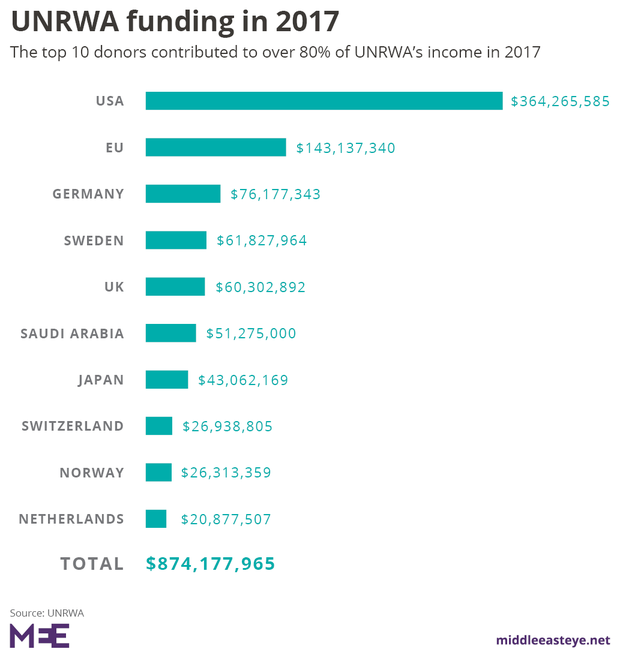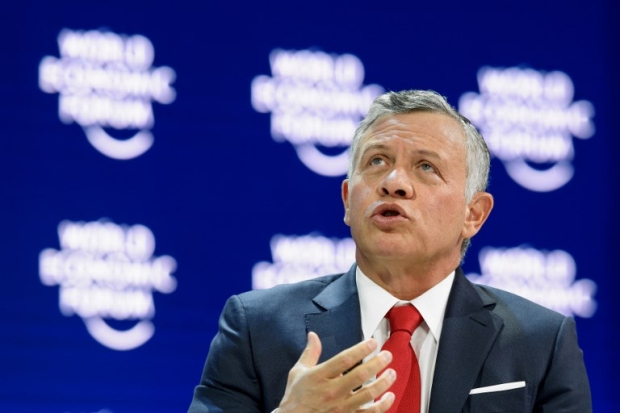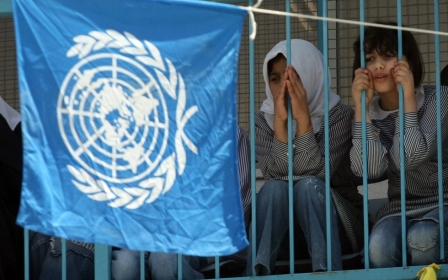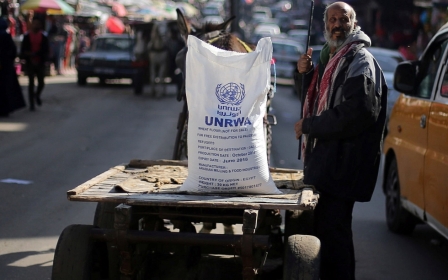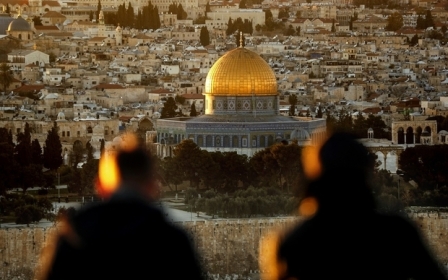UK says funding cut to UNRWA could lead to instability
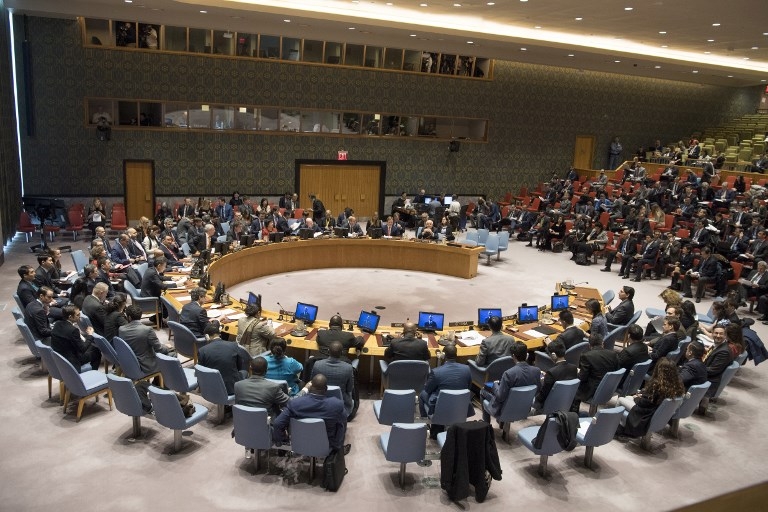
A senior British diplomat has backed the United Nations agency responsible for Palestinian refugees, saying that a cut in US funding could lead to instability in the region.
Speaking at a meeting at the United Nations Security Council in New York, Stephen Hickey, acting UK deputy ambassador to the UN, said the United Nations Relief and Works Agency for Palestine Refugees in the Near East (UNWRA) provided “vital services” to millions of Palestinian refugees scattered across the Middle East.
“The United Kingdom remains a firmly committed supporter of UNRWA and we recognise its unique and important mandate from the UN General Assembly, providing vital services to the Palestinian refugee population, both in the occupied territories and in Jordan, Syria, and Lebanon.
“Although we do agree that there is an urgent need for UNRWA to become more efficient and cost-effective by stepping up the pace of reform, UNRWA must continue to be able to carry out its important functions.
“Any unexpected reductions or delays in predicted donor disbursements can have damaging impacts and undermine stability in the region.”
His comments come days after the US - the agency’s largest single donor - announced it is holding half of its promised funding to UNRWA, and asked other countries to do more to help.
"One of the things that the United States would like to do is see some revisions made in how UNRWA operates," State Department spokesperson Heather Nauert said last Tuesday, calling on other states to contribute more to the funding of the agency's work.
The move was expected after a series of tweets from US President Donald Trump sent at the start of the year accused the Palestinians of “no appreciation” and questioned their commitment to peace with Israel.
Israeli Prime Minister Benjamin Netanyahu went a step further, then calling for the agency to be shut down entirely.
The funding cuts will be a significant blow to UNWRA which for nearly 70 years has been a lifeline for Palestinians, offering support in food supply, access to education, healthcare, social services and employment.
During a statement that also affirmed British support for the two-state solution, Hickey also said that settlement activity and demolitions, including in East Jerusalem, “undermined the prospects for peace” and needed to be halted.
“The pace of settlement construction has regrettably accelerated, notably with the advancement of plans for over 10,000 settlement units, including the approval of the first new housing units in Hebron for 15 years.
“And the signs from early 2018 are not encouraging. Only two weeks ago, Israel announced the advancement of a further 1,122 housing units across the West Bank.”
Hickey's comments were echoed by the British consulate in Jerusalem on Friday which said on Twitter that the UK remained a firm supporter of UNRWA.
Also speaking on Thursday, King Abdullah of Jordan firmly backed the US as a mediator between the Palestinians and Israelis, despite Trump’s controversial decision in December to recognise Jerusalem as the capital of Israel.
Abdullah admitted his “scepticism” over a forthcoming US peace plan and challenged the Americans to “give something very good to the Palestinians".
He remained optimistic about the future of the peace process. "We've been at this for a while and looking at this always as a glass half full. We have to give the Americans the benefit of the doubt."
New MEE newsletter: Jerusalem Dispatch
Sign up to get the latest insights and analysis on Israel-Palestine, alongside Turkey Unpacked and other MEE newsletters
Middle East Eye delivers independent and unrivalled coverage and analysis of the Middle East, North Africa and beyond. To learn more about republishing this content and the associated fees, please fill out this form. More about MEE can be found here.


